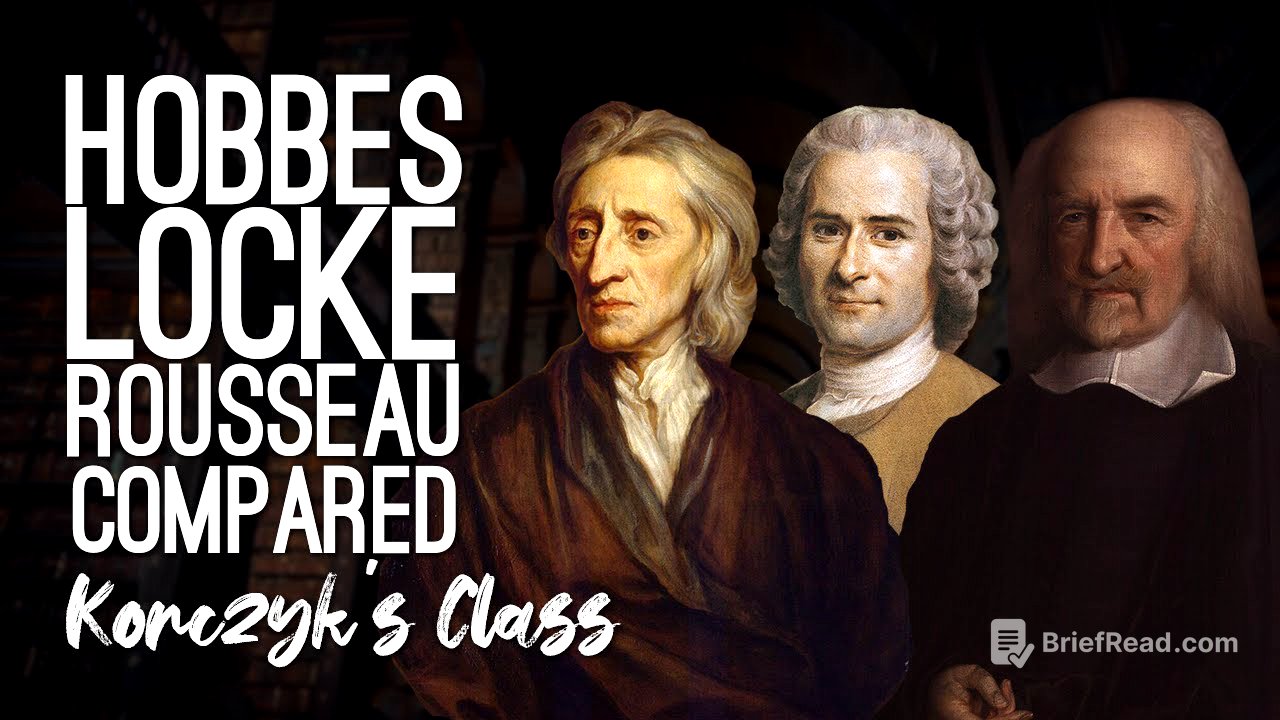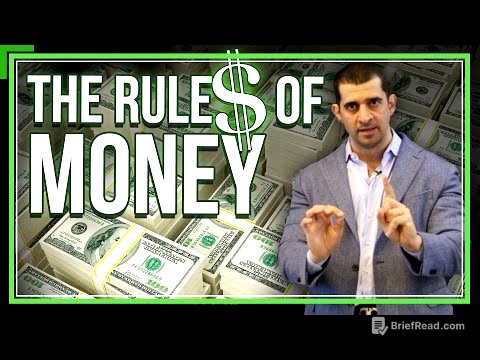TLDR;
This video explores the concept of the social contract as envisioned by three key Enlightenment philosophers: Thomas Hobbes, John Locke, and Jean-Jacques Rousseau. It contrasts their views on human nature, the role of government, and the balance between individual freedom and collective security. Hobbes believed in a strong, authoritarian government to prevent societal collapse, Locke advocated for limited government protecting individual rights, and Rousseau championed a society where the general will of the people dictates decisions.
- Hobbes: Authoritarian rule for security.
- Locke: Limited government, protection of individual rights.
- Rousseau: Collective decision-making for the common good.
Introduction: Divine Right vs. Social Contract [0:00]
Before the Enlightenment, rulers often justified their authority through the divine right of kings, claiming their power came directly from God. The Enlightenment introduced social contract philosophy, which posits that the right to rule originates from the people. Different philosophers interpreted the social contract differently, particularly regarding how much freedom individuals should concede to the government in return for security and protection.
Thomas Hobbes: The Need for a Strong Authority [0:43]
Thomas Hobbes believed that human nature is inherently destructive, leading to violence and chaos without governance. In his book Leviathan, he described life in the state of nature as "solitary, poor, nasty, brutish, and short," a constant state of war. Hobbes argued for a strong, authoritative figure, a "Leviathan," to maintain order. People should willingly surrender their freedom to this figure, understanding that without such control, society would descend into anarchy.
John Locke: Champion of Individual Freedom [1:51]
John Locke held a contrasting view, believing that people are born with a "tabular rasa" or blank slate, lacking inherent destructive tendencies. He argued that individuals, if left to their own devices, would naturally improve themselves and society, given sufficient freedom. Locke emphasised the importance of a limited government that protects people's life, liberty, and property. He advocated for a representative democracy where elected leaders make laws on behalf of the people. Furthermore, Locke believed that people have the right to overthrow leaders who no longer act in their interests, a principle reflected in elections and, in extreme cases, revolutions.
Jean-Jacques Rousseau: The Corruption of Society [3:36]
Jean-Jacques Rousseau took a different stance, arguing that the freedoms advocated by Locke would lead to corruption and societal disintegration. He famously stated that "man is born free, but everywhere in chains," suggesting that social structures corrupt individuals, leading to jealousy and societal breakdown. Rousseau envisioned a society where people are free and equal, making decisions collectively based on the "general will" of the community. In this model, laws are made directly by the people, and individual desires are subordinate to the community's best interests.
Synthesis: Modern Applications and the Enduring Question [4:53]
The ideas of Hobbes, Locke, and Rousseau continue to influence modern societies. Liberal democracies often align with Locke's emphasis on protecting personal freedom and private property. However, restrictions on individual freedoms are sometimes implemented to protect security or the common good, reflecting concerns about individuals' ability to always make decisions that benefit society as a whole. The central challenge remains: to what extent should government and laws limit our freedom in exchange for security?









